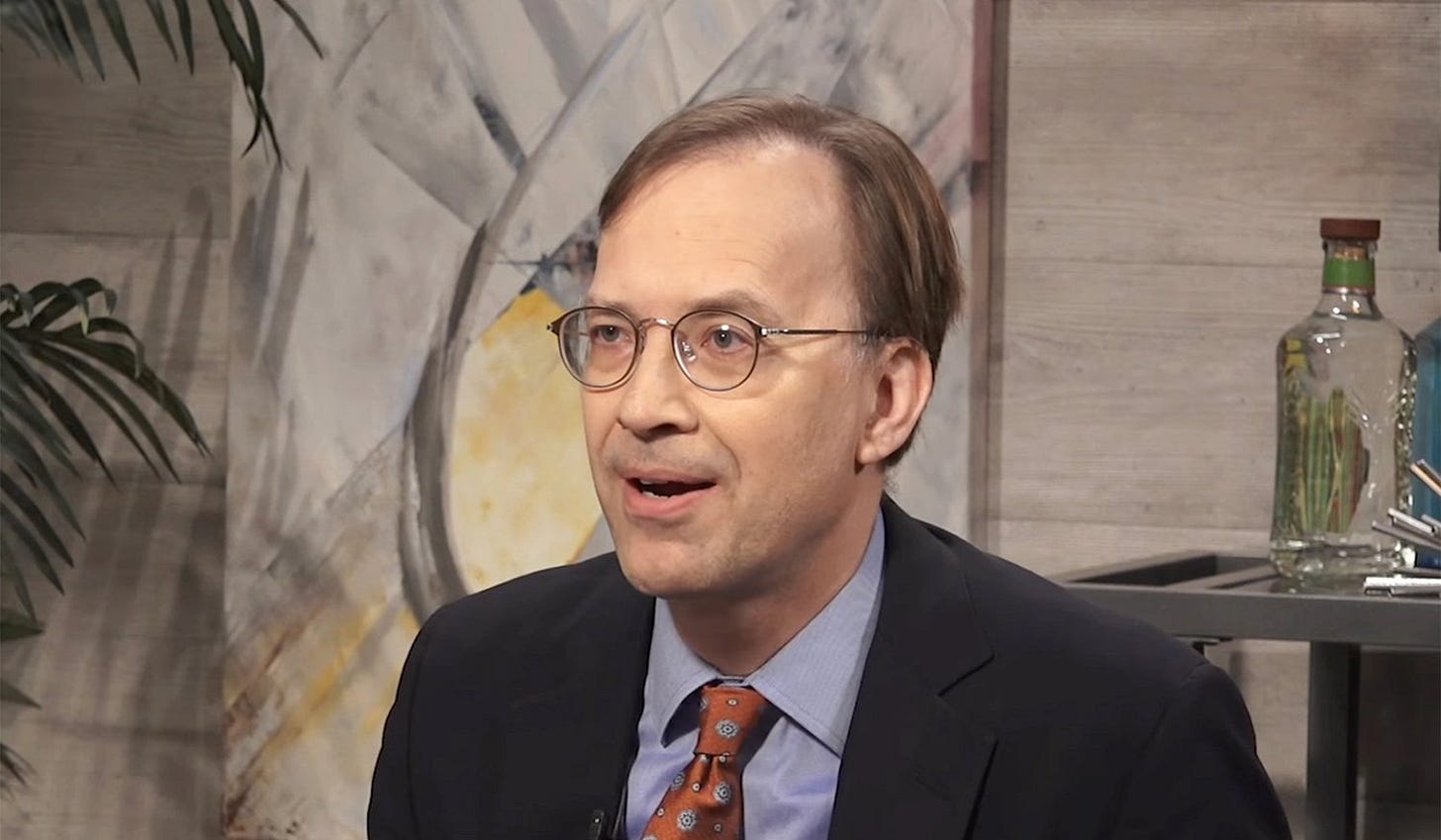Free Econs
Conservatives argue case for free markets and pro-growth reforms
While Freedom Conservatives embrace a wide range of goals — such as improving education, strengthening families, defending the constitutional order, decentralizing power, and ensuring equal protection under the law — we place a high priority on economic policy.
“Americans can only prosper in an economy in which they can afford the basics of everyday life: food, shelter, health care, and energy,” we wrote in last year’s FreeCon Statement of Principles.
“We commit to reducing the cost of living through competitive markets, greater individual choice, and free trade with free people, while upholding the rule of law, freedom of contract, and freedom of association.”
Our priorities are shared by most Americans. In a recent CBS News survey, 80% of respondents in battleground states said the economy was one of their top voting issues, while 77% said the same about the related issue of inflation.
This week, we feature the work of three FreeCons who believe tax relief, regulatory relief, fiscal restraint, and supply-side reforms are the right ways to promote growth and opportunity — and that both the progressive Left and the populist Right get economic policy wrong.
Road to jobs
Bethany Marcum heads the Alaska chapter of Americans for Prosperity. She is also a FreeCon signatory.
Formerly the executive director of a state-based think tank, the Alaska Policy Forum, Marcum is a master sergeant in the Alaska Air National Guard and has worked as a legislative aide and as a business systems analyst.
In a recent op-ed for the Anchorage Daily News, she criticized the Biden administration’s opposition to a road project that would create jobs and economic opportunities in the state’s mining industry.
Calling the project “a necessity for Northwest Alaska,” Marcum argued that it is a national and global necessity, as well.
“Many of the minerals embedded in the Ambler mining district are copper and rare-earth deposits,” she wrote. “The Biden administration says we need an energy transition, but that can’t be accomplished without these minerals.”
Without the project, she continued, “Northwest Alaska communities will to a very real degree lose their right to work, period, to provide for themselves and their families. Local communities — and even the state — will lose the right to govern ourselves.”
Reset spending
Brian Domitrovic is the Richard S. Strong Scholar at the Laffer Center and a FreeCon signatory.
As a former associate professor and chairman of the department of history at Sam Houston State University, Domitrovic has written for numerous scholarly and popular publications.
He’s the author of Econoclasts: the Rebels Who Sparked the Supply-Side Revolution and Restored American Prosperity and co-author (with Arthur Laffer and Jeanne Sinquefeld) of Taxes Have Consequences: An Income Tax History of the United States.
In a Tax Day-themed Law & Liberty essay, Domitrovic explained that progressives often misinterpret the effects of federal taxes on past economic performance because they ignore how high marginal rates influence taxpayer decisions.
“Doing your income taxes in the super-high tax-rate era,” he wrote, “before the Kennedy tax cut of 1964 — if not the Reagan tax cuts of the 1980s — was an exercise in taking enormous amounts out of the top line in accounting terms (revenues) to yield a small bottom line (income or profits subject to taxation).”
Domitrovic agreed that the federal government’s burgeoning debt requires serious attention, but argued that spending restraint is a better solution than tax hikes.
“If the federal government reset spending to the ample levels of 2019 and re-initiated Reaganite tax reform, a debt-free twenty-first century can be ours, complete with levels of mass prosperity competitive with any in our history.”
Long-run damage
Daniel J. Mitchell is a co-founder of the Center for Freedom and Prosperity and a FreeCon signatory.
Formerly a senior fellow at the Cato Institute and the Heritage Foundation, Mitchell served as an economist for the Senate Finance Committee and on the 1988 Bush/Quayle transition team.
The author of The Flat Tax: Freedom, Fairness, Jobs, and Growth, he’s been published in such publications as the Wall Street Journal, New York Times, Investor’s Business Daily, and Washington Times.
In a recent article, Mitchell wrote that he favored Freedom Conservatism over National Conservatism because “the former is unambiguously based on liberty and the latter veers toward populism.”
Then he cited new research by three university scholars on the performance of economies with populist regimes. “The biggest takeaway from their study is that populism leads to less prosperity.”
Both left-wing populists and right-wing populists “produce negative economic consequences,” he explained, which “confirms my shorthand definition that populists do things that seem popular in the short run (spend money and print money) but do damage in the long run.”
A deep six
Samuel Gregg is the Friedrich Hayek Chair in Economics and Economic History at the American Institute for Economic Research. He is also a FreeCon signatory.
Gregg is a contributor to Law and Liberty, a fellow of the Royal Historical Society, an affiliate scholar at the Acton Institute, and a fellow of the Center for the Study of Law and Religion at Emory University.
He is the author of sixteen books, including On Ordered Liberty (2003), The Commercial Society (2007), Wilhelm Röpke’s Political Economy (2010); Reason, Faith, and the Struggle for Western Civilization (2019); and The Next American Economy: Nation, State and Markets in an Uncertain World (2022).
At a Princeton University event last month, Gregg and American Compass executive director Oren Cass presented alternative conceptions of conservative economic policy. Public Discourse has published a lightly edited version of Gregg’s speech, which concluded by articulating six categories of reforms broadly endorsed by FreeCons:
“One: Creating space in America for bottom-up-driven entrepreneurship, fierce competition, and dynamic trade inside and outside America’s borders.
“Two: Creating that space by de-clogging the U.S. economy of the regulatory and bureaucratic sludge that envelops it.
“Three: Reforming the Federal Reserve to focus it on a single mandate of monetary stability.
“Four: Decentralizing as many welfare responsibilities as possible to civil society.
“Five: Reforming our immigration system so it is easy for migrants to come here, but to do so legally and in a way that affirms American sovereignty.
“Six: Focusing government on fulfilling those particular economic responsibilities that it alone can do — like defending property rights, upholding the rule of law, providing monetary stability, and providing a last resort rather than a first resort welfare function.”




